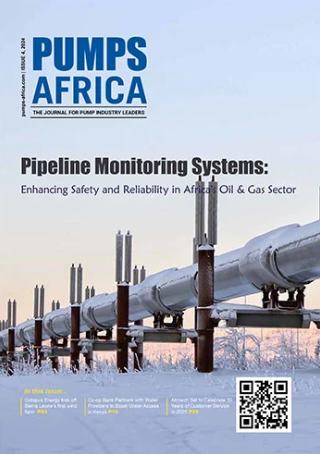In a landmark move toward sustainable energy governance, the Ministry of Energy, in collaboration with key stakeholders, has officially launched the Stakeholder Sensitization Forums on the Energy Management Regulations 2025, beginning in Kisumu.
This initiative aligns with the Energy Act, 2019, and marks the beginning of a nationwide campaign aimed at instilling a culture of energy efficiency, accountability, and innovation across Kenya’s industrial, commercial, and public sectors.
The inaugural forum brought together Energy Managers, industry players, government agencies, and representatives from the Nyanza–Western Region, marking the first step in what will be a multi-regional journey to transform Kenya’s energy landscape.
Why Energy Management Regulations Matter
Kenya faces the dual challenge of meeting growing energy demand while transitioning to low-carbon, sustainable energy systems. The Energy Management Regulations 2025 aim to tackle this head-on by tightening regulations on energy use in large-scale facilities, promoting energy-efficient practices, and establishing national standards that align with global sustainability targets.
These forums are not only about policy dissemination but also about empowerment—helping stakeholders understand their responsibilities, opportunities, and the broader economic and environmental benefits of energy efficiency.
Key Areas of Focus in the 2025 Regulations
The Energy Management Regulations 2025 introduce several critical reforms that promise to reshape how energy is consumed, monitored, and regulated in Kenya. The following are some of the core pillars:
- New Licensing Requirements for Energy-Intensive Facilities
Energy-intensive enterprises will now be required to obtain specific licenses to operate, ensuring compliance with national efficiency standards. This will enhance transparency and allow for better monitoring of high-consumption industries. - Adoption of Energy Performance Indicators (EnPIs)
Facilities will be required to adopt Energy Performance Indicators tailored to their operations. These indicators will provide measurable data points for evaluating energy use efficiency and facilitate evidence-based decision-making. - Establishment of Industry-Wide Benchmarks
The new regulations aim to standardize energy use benchmarks across various industrial sectors. These benchmarks will serve as reference points to gauge performance and identify opportunities for improvement. - Introduction of Energy Savings Certificates (ESCs) Trading
One of the most transformative components of the regulations is the proposed Energy Savings Certificate Trading System. Organizations that exceed energy-saving targets can earn tradable certificates, creating a market-based mechanism to reward innovation and efficiency. - Mandatory Four-Year Energy Audit Cycle
All qualifying facilities will be obligated to conduct a comprehensive energy audit every four years. These audits will not only ensure compliance but will also uncover untapped opportunities for savings and process optimization.
Kisumu Takes the Lead
Launching the forums in Kisumu underscores the government’s commitment to regional inclusion and grassroots engagement. Energy is not just a Nairobi issue—it is a national development pillar, and involving the Nyanza–Western Region early in the process sets a tone of collaboration, inclusivity, and accountability.
The Kisumu event drew an enthusiastic crowd, with stakeholders expressing both curiosity and support for the new regulatory framework. Government officials emphasized that these forums are meant to foster dialogue, gather feedback, and tailor implementation strategies that reflect the diverse realities of Kenya’s economic sectors.
A Call to Partner for a Sustainable Future
The Energy Management Regulations 2025 are not simply about compliance—they represent a shared vision for smart, sustainable, and inclusive energy development in Kenya. Stakeholders across sectors are being urged to partner with the government in driving this transition.
From manufacturers and utilities to real estate developers and county governments, every player in the energy value chain has a role to play. Together, we can reduce operational costs, improve national energy security, lower carbon emissions, and contribute to Kenya’s global climate commitments.
Looking Ahead
As the Stakeholder Sensitization Forums roll out across the country, each region will have the opportunity to engage with the new regulations, voice their perspectives, and explore localized solutions. The process is designed to be dynamic, adaptive, and participatory.
The Ministry of Energy has committed to transparency and inclusivity throughout this process. Stakeholders are encouraged to attend upcoming forums, ask questions, seek clarifications, and become ambassadors for energy efficiency within their organizations and communities.
The launch of the Stakeholder Sensitization Forums on the Energy Management Regulations 2025 signals a bold, forward-thinking chapter in Kenya’s energy policy. By prioritizing sustainability, measurable performance, and collaborative governance, Kenya is positioning itself not just as an energy consumer—but as a leader in energy innovation.
For businesses, institutions, and local governments, the message is clear: now is the time to adapt, invest in efficiency, and help shape a resilient, energy-smart Kenya.







